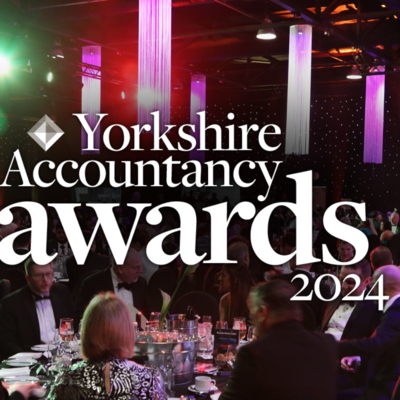To succeed in an accountancy career, it's essential to acquire the necessary qualifications, as they open up a variety of rewarding and challenging opportunities. The path to becoming a qualified accountant varies significantly based on your background, especially if you have recently left college or university, and you are looking to land your first role in finance.
Regardless of whether you have just completed a college course or you have secured a degree or masters, there is a lot to think about before starting your career in accountancy.
To find the right route for you, consider your starting point and the best qualifications and entry paths into the field. There are typically two main routes into accountancy. The first is going into “industry”; working in the finance team of a single company. The second is going into “practice”; in effect, you work for an accountancy firm that supplies accountancy services. That could be for one of the Big Four firms: PwC, Deloitte, EY and KPMG, or one of the many myriad of accountancy practices.
If you've recently left college or university (where you have not studied accountancy), consider the AAT Qualification, CIMA Certificate, or ACCA Knowledge qualifications. These options allow you to study accountancy with no prior qualifications, and you can start training at any age. For university graduates with a degree in finance or another relevant subject, ACCA, CIMA, or ACA qualifications are good choices if you want to become a chartered accountant.
Starting your Accountancy Career
If you have recently finished college, it’s likely that you will start as a ledger clerk to gain experience, before moving up to accounts assistant and assistant accountant level. If you have completed university, you are likely to begin your accountancy journey with an assistant accountant role, as you have experience from exams and placement years to put to good use.
There is no denying that accountancy is an excellent choice of profession, especially if you have a handful of essential skills. Whether you are thinking about becoming an accountant, currently in education or taking the apprentice route, it's important to come across as eager and willing to learn. It’s important to note that roles that progress quickly are great but they're really few and far between so it's also about being patient. Here are a few of the key skills needed in the accounting industry.
Numerical skills – Although this may be obvious, numerical skills are the basis of everything an accountant does. You should be able to understand, work with and calculate numbers with ease. After all, a small accountancy error can have a big impact, and will need to be found quickly.
Time management skills - There are a lot of strict deadlines in accountancy, so time management skills are key. You need to be able to manage and control your time, and this includes managing multiple clients at once. If there is an emergency, you need to find the time to solve the problem.
Technical Skills - Since COVID, there has been a lot more reliance on technology, and this is especially true in the world of accountancy. With people working from home and a lot of work being done remotely, being able to navigate the technological world is key. A lot of what goes into accountancy relies on various systems and programs, and having a good understanding of technology could help you to get ahead.
Analytical skills - The accounting industry requires you to analyse and predict future scenarios, and you must be able to visualise potential outcomes. This is why analytical skills are essential.
Flexible intellectual skills - It’s beneficial for an accountant to have knowledge about other areas of the business, such as a good understanding of what the business does. This is because most areas of the business will have some form of accounting that needs doing.
Communication skills - As an accountant, you will be working with a variety of colleagues and clients, so communication skills are key. Being skilled in this is important, as miscommunication can lead to delays and errors.
Microsoft Excel skills - If you know anything about accounting, you will know that Microsoft Excel is a key part of day to day operations. Even with a variety of accounting tools available, Excel is still heavily relied upon, and being skilled in this is invaluable. Luckily, it’s easy to use and customisable, meaning that you can use Excel in a way that works for you.
Attention to detail - It’s important for an accountant to be precise and attentive, as even the smallest mistakes can be time consuming and costly to fix. There isn’t a lot of room for error in accounting, considering how much data is used, and paying close attention to detail is key.
Advancing Your Accountancy Career
Starting a career in UK accountancy can be a great choice for those who are detail-oriented and enjoy working with numbers. Here are some steps to help you get started:
Choose the right qualification: Research each qualification (AAT, ACCA, CIMA and ACA) to determine which one is the best fit for your career goals and current skill set.
Gain relevant work experience: Many employers prefer candidates who have gained some work experience in the field. Consider internships or part-time work in accounting to gain practical experience and build your resume.
Network: Attend networking events and job fairs to meet potential employers and learn about job openings in the industry.
Keep up to date with industry developments: The accounting industry is constantly evolving, so it's important to stay up to date with the latest developments and changes. This can be done by reading industry publications, attending conferences and seminars, and joining relevant professional organisations.
Choose a training provider: Once you have decided on a qualification, you will need to choose a training provider to help you study for and pass your exams. Many providers offer online courses, evening classes, and weekend sessions to fit around work and other commitments.
Apply for jobs: Once you have the relevant qualifications to begin your studies and some work experience, start applying for jobs in the industry. Keep your CV and cover letter up to date and tailor them to the specific job you are applying for.
Whether you are just starting out in your career, or are a seasoned professional, Sewell Wallis can help you find your next role which will match your ambition, skills and values. Get in touch for a bespoke recruitment journey.















